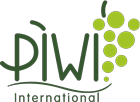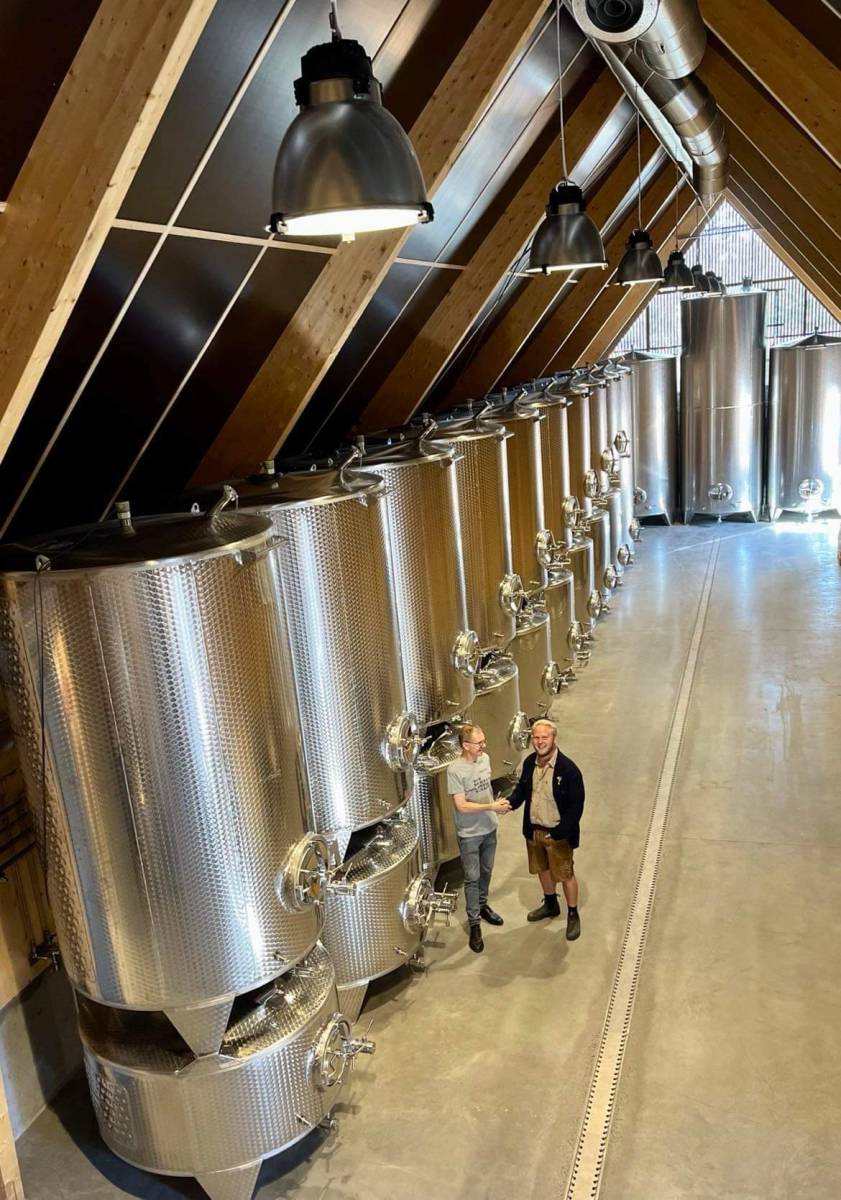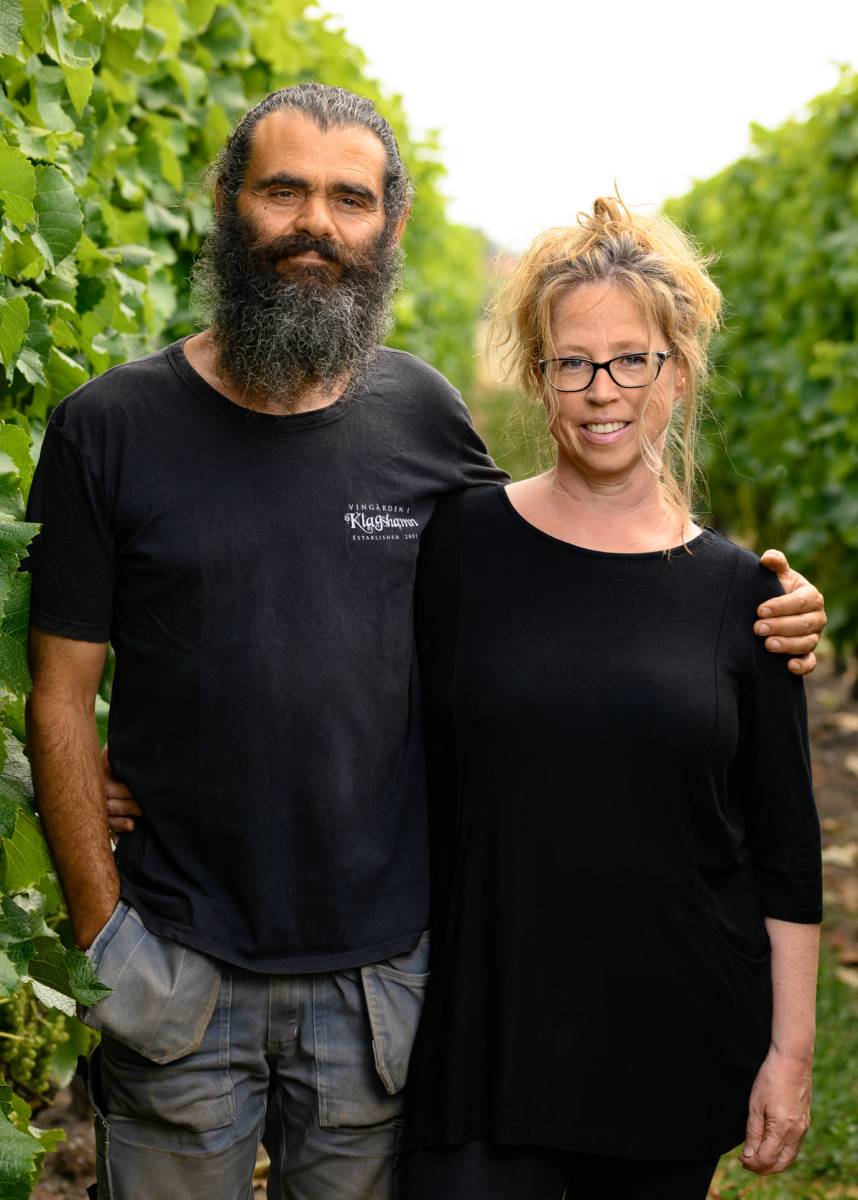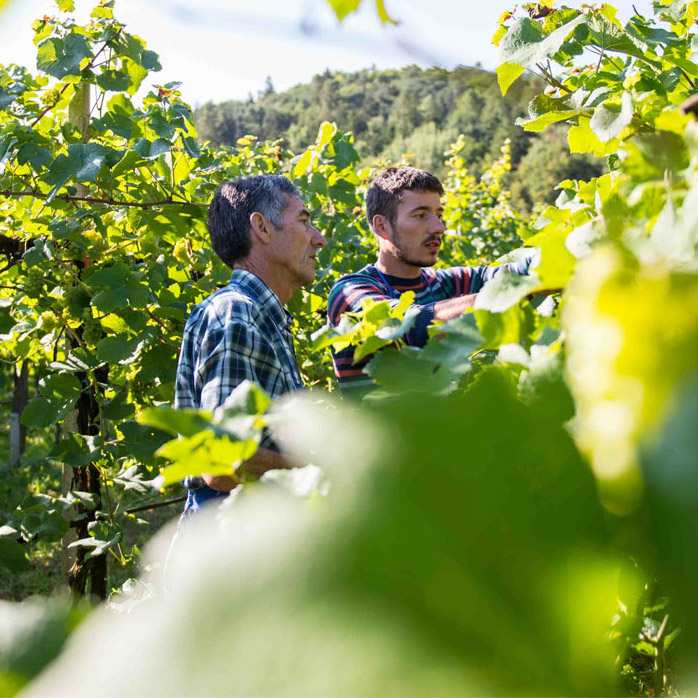Late pruning of the vine
This is a translation of an article originally written in French.
In the current climatic context, with milder winters leading to earlier budburst in most wine regions, vines are exposed to the risk of spring frosts for a longer period. Depending on the year, frost can lead to yield losses of between 20 and 100 %, jeopardizing the economic survival of wine estates. In addition, by destroying young shoots, spring frosts can impact the following season’s production, by reducing the number of canes available for pruning, for example. Late pruning is one method to combat spring frosts (Ravas, 1912; Frioni et al., 2019).
The country needs new grape varieties...
Source: Tagesschau - MITTENDRIN - viticulture and climate change
Long periods of drought, extreme heat and heavy rainfall: climate change and its consequences pose major challenges for winegrowers in the Rheingau. Traditional grape varieties in particular are suffering from the extreme weather.
Excerpt from the article ….
Save Riesling from extinction
Since 2014, the Geisenheim University of Applied Sciences has been researching what the future of viticulture could look like with a project that is unique in the world. With the FACE experiment, the researchers venture a glimpse into the atmospheric future. The expected CO2 concentration of 2050 is simulated by the targeted addition of around 20 percent carbon dioxide.
Two varieties are examined: the Cabernet Sauvignon, which is more familiar from warmer climes, and the Riesling, which is typical of the Rheingau. "Of course we are interested in how the wine will be in 2050, but above all: How will the plant react?" says Hans Reiner Schultz, President of the university. It is about the water consumption and the structure of the fruit, because the more compact a fruit is, the more susceptible it is to rot.
It is already apparent today that this could become a problem for Riesling. The increased CO2 concentration leads to increased photosynthesis and stronger berry growth; this makes the Riesling vines more compact and therefore more susceptible to mold growth. To ensure that the Riesling does not die out in the Rheingau, the University breeds Riesling vines that can cope better with climate change and have looser berry growth overall.
Pesticides - sustainable use (updated EU rules)
EU rules on the sustainable use of pesticides aim to protect human health and the environment from the potential risks and effects of pesticides.
The regulations encourage the reduction of pesticides by
- integrated crop protection
- Alternatives to chemical pesticides.
This initiative is examining the extent to which these targets have been met and how pesticide use can be further reduced in order to achieve the goals of the Farm to Fork strategy and the European Green Deal.
PIWI International does not refer to the resistant varieties in this regulation!
“The proposal for a regulation on the sustainable use of plant protection products focuses too much on integrated pest management and misses the point – investing in and promoting cultivar resistance.
Many agricultural crops already have cultivars with a genetically encoded higher level of resistance classic interspecific crossing was acquired. These new varieties have natural resistances and are therefore less susceptible to disease, therefore requiring much less treatment than traditional grape varieties, and when using less aggressive products. This also reduces the carbon footprint, not just the chemical load.
The dissemination and promotion of these new varieties, especially in viticulture, where there are already enough positive experiences across Europe, should be the main direction for agriculture, along with the replacement of aggressive chemicals.
In the case of grapevines, for example, around 100 such varieties are already registered in the relevant variety lists in the EU Member States, and more are being added all the time. Dozens of them are approved for the production of top wines (PDO and also DOC) in some countries such as Germany, Austria, Czech Republic, Switzerland, Italy and France and have won high awards at international wine competitions. In general, therefore, the greatest potential for reducing pesticide use lies in the biological value of varieties, which is not addressed in the proposed regulation.
Harvest report from Sweden: Late flowering – late harvest
The spring was late and cold, which means a later harvest and slightly less fruit. But the quality of the Swedish grapes is reported to be good.
The Swedish winegrowers are preparing for harvest. As in the rest of Europe, the summer was hot and dry (but without an extreme heatwave). However, a cold May and thus flowering means that the harvest takes place slightly later compared to last year, plus there will be a few fewer grapes.
At Kullabergs Vingård in southwestern Sweden, their harvest of PIWI is expected to begin in October.
– The cool and late flowering means that we have a slightly smaller amount of fruit this year. But the summer was hot and dry so it looks good, says winemaker K Felix G Åhrberg, who came to Kullaberg in 2017 after working abroad. He is a trained oenologist at Klosterneuburg in Austria.
Kullaberg grows six primary varieties – Solaris, Souvignier Gris, Muscaris, Donauriesling, Pinot Nova and Cabernet Noir – but also has experimental cultivation with around 20 varieties to see what works. Until now, the focus has been on the Swedish „national grape“ Solaris, but K Felix G Åhrberg strongly believes in the new PIWI generation of blue varieties.
– In my opinion, Rondo and Regent give a bit of foxy flavor – it’s kind of like running Windows 95 on your computer. Pinot Nova and Cabernet Noir I like a lot, he says.
Pinot Nova (Blauer Burgunder x Malverina) is related to Pinot Noir and comes from Austria; Cabernet Noir is an offspring of Cabernet Sauvignon and was cultivated by Valentin Blatter in Switzerland in 1991.
Kullaberg is Sweden’s largest investment winery with a total of 14 hectares. The soil is mostly sand-mixed clay with one of the country’s oldest rock types, the pink-toned diabase Kullait. The location right by the sea is also favorable:
– We are surrounded by three seas, Öresund, Skälderviken and Kattegatt. This means that we have a mild climate with a long growing season.
A new circular winery built of wood will be inaugurated at the end of October.
– We have solar cells and our own water which we reuse. It’s 2.000 square meters and the capacity will be 100,000 bottles. Last year we made 32,000.
Just outside Malmö in the south you’ll find Vingården i Klagshamn, founded in 2001 and one of the pioneers in Swedish viticulture. Murat Sofrakis and Lena Jörgensen have 1.8 hectares, 80 percent Solaris.
– For our part, it was a cold spring with a late flowering at the end of June, and beginning of July. When summer came, it became dry – the plants were stressed, so now we are a little behind compared to previous years. We usually harvest in mid-September but are still waiting to get started.
Lena Jörgensen confirms the increased interest in Swedish wine.
– Absolutely. There is greater demand and we sell out. We accept pre-booked groups and this year we have been full. It’s a new category of people coming now, wine geeks with a solid interest.
Photos:
• The new cellar at Kullabergs Vingård, with steel tanks from Ledinegg, Austria.
• Murat Sofrakis and Lena Jörgensen, Vingården i Klagshamn.
Approval of a new protected designation in the Netherlands
In the Official Journal of the EU C 315 of August 19, 2022, the EC notification 2022/C 315/06 on protected designation of origin (PDO) "Rivierenland" for wine, quality sparkling wine, semi-sparkling wine and wine from dried grapes was published.
Depending on the type of product, the minimum alcohol content is between 5 % and 12 % vol. Depending on the variety, the maximum yield per hectare is 40-60 hectoliters. The varieties are exclusively PIWI, of which there are 14 in total, most of which come from Germany and 4 from Switzerland. The white PIWI varieties are Cabernet blanc, Johanniter, Merzling, Muscaris, Sauvignac, Solaris, Souvignier gris and Villaris. The blue PIWI varieties are Cabaret noir, Cabernet Cantor, Cabernet Cortis, Monarch, Pinotin and Regent.
Official Journal of the EU C 315 of August 19, 2022; Jiří Sedlo
Swedish viticulture with PIWI
In just over 20 years, Swedish viticulture has gone from being a hobby to a commercially recognized player with wines that win international prizes and reputation – thanks to the hardy PIWI grapes.
Sweden has around 50 commercial vineyards and nearly 200 hectare under vines. The main grape is Solaris – roughly 80% – followed by Rondo; both established PIWI varieties.
piwi-boerse.de – the fastest way to new grape varieties!
The current sustainability debate has given the PIWI topic new impetus and increased demand for new varieties.
DLR-Rheinpfalz, together with the German Winegrowers' Association and PIWI Germany, developed the "piwi-boerse.de" platform as an experiment so that you, as a winegrower, can quickly and easily gain your own experience in growing new grape varieties (PIWIs). .
With the exchange you have the opportunity to buy (or sell) small quantities of wine grapes or must from new grape varieties and to try out and experiment with vinification.
The PIWI Exchange is initially scheduled for one year.
Contact:
DLR Rheinpfalz
dr Charlotte Hardt
Charlotte.Hardt@dlr.rlp.de
PIWIs, sheep and alpine climate
In South Tyrol, winegrowers rely on resistant varieties - and they are successful
1st International conference SABB2022 in Ghent, Belgium
The first edition of the international conference on Sustainable Agriculture Biostimulants and Biopesticides will take place in Ghent, Belgium from Tuesday 20th September until 22nd Sep 2022.
The conference aims to bring together academics, industry, regulatory experts, and policy makers with an interest in plant biostimulants and biopesticides. The conference will focus on non-microbial biostimulant and biopesticide state of the art research. The main topics of the conference are novel biostimulants other biopesticides, progress in the mode of action, bioactive ingredients, plans stress, immune response. A workshop on the 22nd of September will give a forum to discuss the implementation, social issues, and agricultural policy around biostimulants and biopesticides. the 22ndnd There will be an opportunity to visit a 6000 square meter rooftop greenhouse research facility or the Gembloux Agro-Bio Tech research facility.
Viticulture needs new fungus-resistant and stress-tolerant grape varieties in order to be able to defy climate change
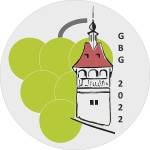
Vine breeders and geneticists from 23 countries exchanged ideas at the XIII. GBG symposium in the Palatinate.
(Siebeldingen) The Institute for Vine Breeding of the Julius Kühn Institute (JKI), located on the Geilweilerhof in the Palatinate, had the honor of hosting the international symposium on vine breeding and genetics this summer (2022). The "XIII. Symposium for Grapevine Breeding and Genetics" took place from 10.-15. July in the Art Nouveau festival hall in Landau. 180 scientists from 23 countries in Europe and overseas came together to present and discuss current research results. The event takes place every four years at different locations around the world. The next host country after Germany is Croatia in 2026. The series of events was launched almost half a century ago by the vine growers at the Geilweilerhof in Siebeldingen, who have been part of the Julius Kühn Institute since 2008.
Approval of new PIWI varieties in Palatinate
In the Official Journal of the EU C 272 of July 15, 2022, the EC notification 2022/C 2272/05 was published on newly approved varieties for quality wine and wine with a predicate in the Palatinate wine-growing region. The maximum yield per hectare is set at 105 hectolitres. Of the more than 30 new varieties, almost ½ belong to PIWI varieties. The white PIWI varieties are Bronner, Cabernet blanc, Hibernal, Muscaris, Sauvitage, Souvignier gris and Villaris. The blue PIWI varieties are Baron, Cabernet Cantor, Cabertin, Calandro, Pinotin, Piroso and Reberger. In addition to the German varieties, there are also some Swiss varieties.
Previously it was already possible to choose from two dozen PIWI varieties such as Johanniter, Juwel, Orion, Phoenix, Prinzipal, Saphira, Sirius, Solaris, Staufer, Accent, Allegro, Bolero, Cabernet Carbon, Cabernet Carol, Cabernet Cortis, Prior, Regent and Rondo, i.e. exclusively from Germany, to win wine with a geographical designation of origin (PDO).
Official Journal of the EU C 272 of July 15, 2022, Jiří Sedlo
Approval of new PIWI varieties in Rheinhessen
In the Official Journal of the EU C 265 of July 11, 2022, the EC notification 2022/C 265/08 was published on newly approved varieties for quality wine and wine with a predicate in the Rheinhessen wine-growing region. The maximum yield per hectare is set at 105 hectolitres. With a few exceptions, the more than 20 new varieties are PIWI varieties. The white PIWI varieties are Cabernet blanc, Calardis blanc, Felicia, Muscaris, Sauvitage, Souvignier gris and Villaris. The blue PIWI varieties are Accent, Allegro, Baron, Cabernet Cantor, Cabernet Carol, Cabertin, Calandro, Pinotin, Piroso and Reberger. In addition to the German varieties, there are also some Swiss varieties.
Previously it was already possible to choose from two dozen PIWI varieties such as Bronner, Helios, Hibernal, Johanniter, Juwel, Merzling, Phoenix, Prinzipal, Saphira, Sirius, Solaris, Staufer, Bolero, Cabernet Carbon, Cabernet Cortis, Monarch, Prior, Regent , Rondo and Rotberger, i.e. exclusively from Germany, to win wine with a geographical designation of origin PDO.
Official Journal of the EU C 265 of July 11, 2022, Jiří Sedlo
